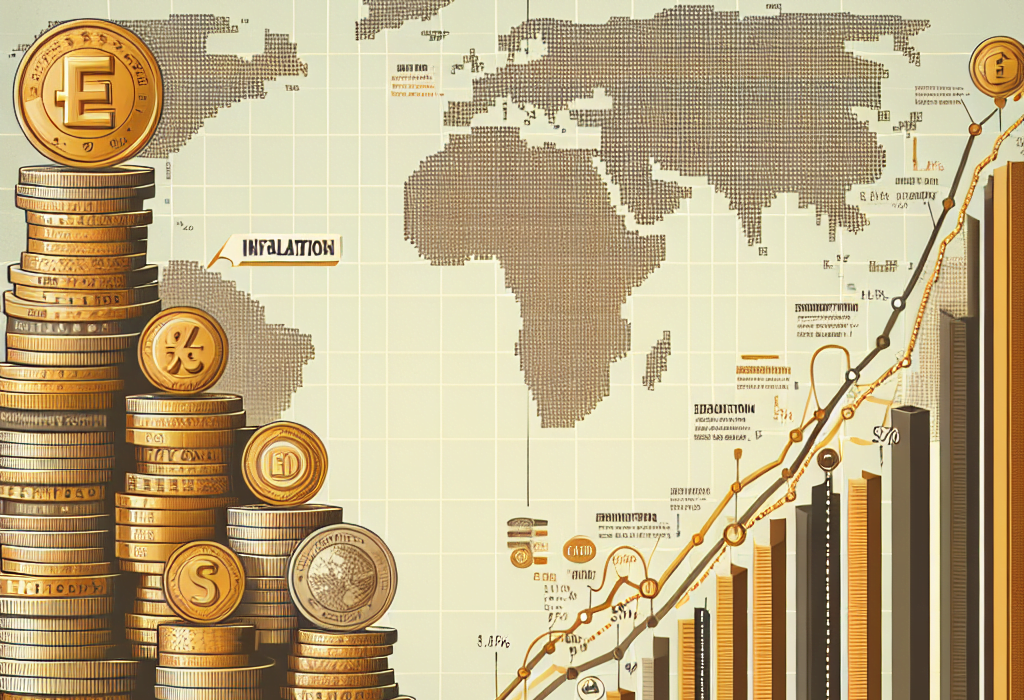Understanding the Impact of Inflation on Economic Growth
Inflation is an economic phenomenon that indicates an increase in the price level of goods and services in a given period. It is generally measured annually and can create non-negligible impacts on various economic components, including economic growth, one of the chief indicators of a country’s welfare and development.
What is Inflation?
Inflation denotes a continual rise in the general price level of goods and services in an economy over time. This rise in prices erodes purchasing power, which means a unit of currency effectively purchases less than it did in prior periods.
Although often viewed negatively, inflation is a normal part of a healthy, growing economy. Central banks in many nations even aim for low, stable inflation rates of around 2% per annum. Prolonged deflation, or negative inflation, can pose bigger challenges, constraining economic growth by causing companies to delay investment and consumers to defer spending.
What is Economic Growth?
Economic growth reflects an increase in the output of an economy, generally measured by its Gross Domestic Product (GDP), which is a comprehensive measure of a nation’s overall economic activity. GDP denotes the total value of a nation’s goods and services produced within a certain period. It is often viewed as an economic snapshot of a country, giving a glimpse of a country’s total economic activity.
Impact of Inflation on Economic Growth
Inflation affects economic growth in several ways, both positive and negative, translating to mixed impacts on consumers, business, and financial markets.
Negative Impacts of Inflation
High inflation rates can disrupt economic balance, leading to negative repercussions on economic growth. Prolonged inflation erodes the purchasing power of money, leading to lower consumption and less business investment. This results in lower demand for goods and services, slowing down the wheel of the economy, leading to low economic growth rates.
Significant inflation can also create uncertainty in the economy, discouraging businesses from making long-term investment plans, creating an environment of insecurity and potential loss. These conditions further discourage both foreign and local investments, leading to reduced economic growth.
Positive Impacts of Inflation
On the other hand, a moderate level of inflation, desired by most economies, can push economic growth. It signals consumers to spend now rather than later when prices may increase. This gearing up in demand motivates businesses to produce more, leading to a rise in employment and production levels – subsequently boosting economic growth.
In a similar vein, moderate inflation reallocates wealth from creditors to debtors. Debtors benefit as they repay their loans with money that is worth less. The increased spending by these borrowers can jumpstart economic growth.
Conclusion
Inflation and economic growth share a complex relationship. While unchecked, rampant inflation can have detrimental impacts on economic growth, a moderate level of inflation can fuel economic growth. Therefore, managing inflation is crucial for any economy to ensure steady and stable economic growth. Central Banks and monetary policymakers should aim for an inflation level sufficient to stave off deflation but also low enough to avoid the damaging effects of hyperinflation. A balanced approach to inflation and economic growth will ensure sustainable development for a country.
FAQs
1. What is inflation?
Inflation is the rate at which the general price level of goods and services is increasing over time. This increase reduces the purchasing power of a unit of currency over time.
2. What is economic growth?
Economic growth represents an increase in a country’s output or income. It is generally measured by the increase in GDP (Gross Domestic Product), which is the total value of all goods and services produced in the country within a given period.
3. How does inflation negatively impact economic growth?
High levels of inflation can destabilize the economy, reduce the purchasing power of money, decrease consumption and business investment, and eventually lead to reduced economic growth.
4. Can inflation have a positive impact on economic growth?
Yes, moderate levels of inflation can stimulate demand as consumers anticipate higher prices in the future. This increased demand can lead to higher output and employment levels, thus, boosting economic growth.
5. What are the roles of central banks in controlling inflation?
Central banks manage inflation through monetary policy. By manipulating interest rates and currency supply, they can control inflation levels to achieve low, stable inflation rates – encouraging investment, consumption, and overall economic growth.













